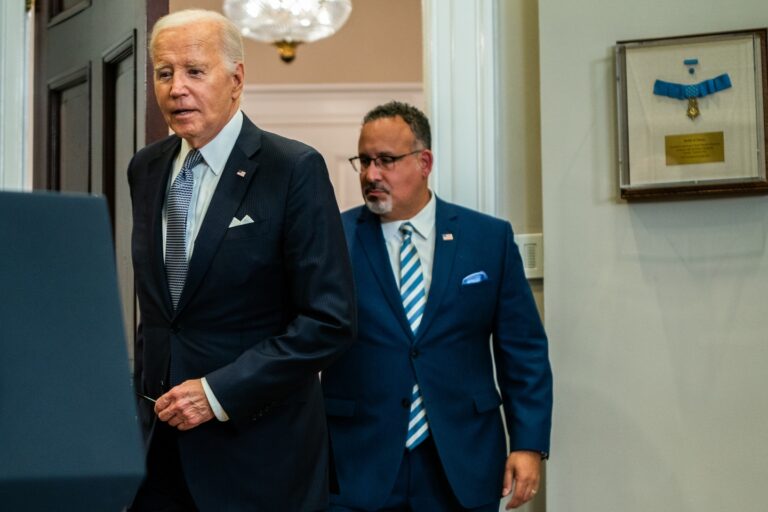In the latest development, the 8th U.S. Circuit Court of Appeals sided with Missouri Attorney General Andrew Bailey and five other Republican-led states, who asked the court to block the Biden administration’s implementation of SAVE while litigation continues. The states successfully petitioned the appeals court to halt the plan entirely after winning a partial injunction from a lower court in June that blocked the Department of Education from forgiving loans through the program.
In a post on X, Bailey called the appeals court’s decision “a major victory for all Americans who still believe they should be able to pay for their own college tuition.” He said SAVE is “an illegal student loan scheme that will saddle working Americans with $500 billion in Ivy League debt.”
A Department of Education spokesman said the federal agency is assessing the impact of the ruling and will be reaching out to borrowers in the coming days.
Save Plan offers millions of borrowers lower monthly payments and faster repayments. 414,000 enrollees who originally borrowed less than $12,000 and had been paying for more than 10 years have already had their balances wiped out. More than 8 million people have enrolled in repayment plans that tie monthly payments to income and family size. The program is a modification of an existing repayment plan known as Revised Pay as You Earn (Repaye). While all income-linked plans promise to forgive borrowers’ balances after 20 or 25 years of repayment, Save Plan offers shorter terms for small loan borrowers.
Six states filed a lawsuit in April alleging that Biden overstepped his authority in creating Save. Missouri’s attorney general also argued that the Missouri Higher Education Loan Authority, a quasi-state agency that services federal student loans and funds state scholarships, would lose revenue if the loans were canceled. In June, U.S. District Judge John A. Ross halted further loan forgiveness, questioning whether Congress envisioned a loan forgiveness plan as far-reaching as Save, and signaled that the program could be overturned.
On the same day that Judge Ross issued the injunction in Missouri, U.S. District Judge Daniel D. Crabtree in Kansas blocked the Biden administration from cutting monthly payments for Save subscribers starting in July.
This month, amid the rapid-fire arguments over SAVE, the U.S. Court of Appeals for the 10th Circuit granted the administration’s request to vacate the Kansas ruling, allowing the Department of Education to move forward with lowering payments under SAVE.
Within days, the three Republican-led states involved in the lawsuit — Alaska, South Carolina and Texas — petitioned the Supreme Court to intervene.
The Biden administration argued that shelving the SAVE Act while the litigation is ongoing would cause widespread harm to borrowers and administrative confusion.
“Returning to the pre-SAVE approach would require Treasury and its servicing companies to reprogram their systems, retrain their staff, and recalculate monthly payments,” Attorney General Elizabeth B. Preloger wrote in a court filing on Wednesday. “That process will take at least several months, during which time Treasury will be forced to place many borrowers in forbearance until the servicing companies are able to charge the new amounts.”
That scenario could become reality following Thursday’s ruling.
Student advocacy groups say the 8th Circuit’s decision could upend the lives of millions of borrowers who have relied on the low monthly payments offered through Save, putting them at greater risk of defaulting on their payments.
“This decision threatens the entire federal student loan system and will cause complete confusion and chaos,” said Eileen Conner, president and executive director of the Project Against Predatory Student Lending. “The SAVE Plan was designed to give low-income borrowers a fair path to repaying their federal student loans, but instead they will be at increased risk of default and suffer severe financial consequences.”
Connor and other advocates are calling on the Department of Education to re-apply forbearance to all student loan borrowers until the legal battle over Save is resolved.

